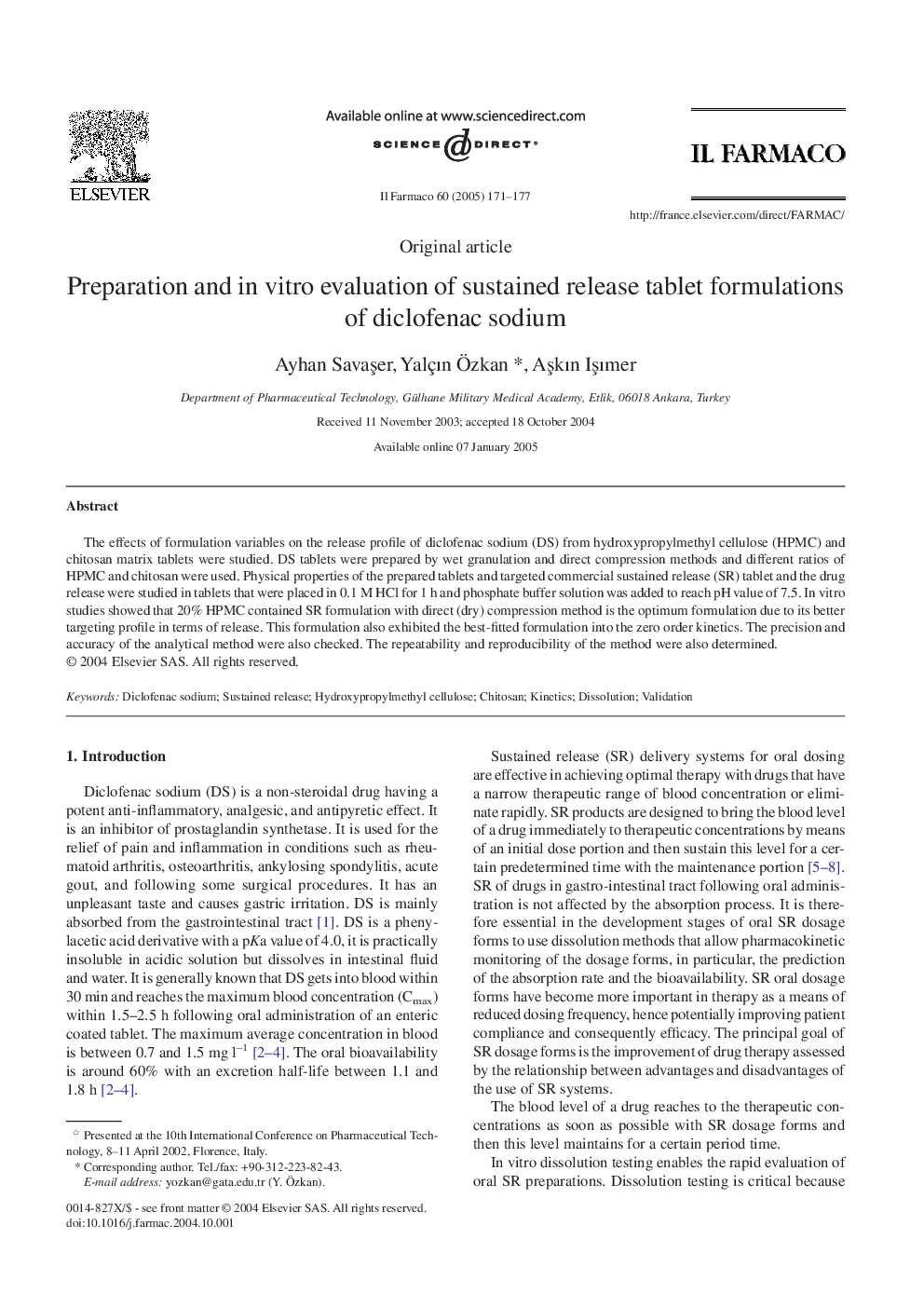| Article ID | Journal | Published Year | Pages | File Type |
|---|---|---|---|---|
| 8993445 | Il Farmaco | 2005 | 7 Pages |
Abstract
The effects of formulation variables on the release profile of diclofenac sodium (DS) from hydroxypropylmethyl cellulose (HPMC) and chitosan matrix tablets were studied. DS tablets were prepared by wet granulation and direct compression methods and different ratios of HPMC and chitosan were used. Physical properties of the prepared tablets and targeted commercial sustained release (SR) tablet and the drug release were studied in tablets that were placed in 0.1Â M HCl for 1Â h and phosphate buffer solution was added to reach pH value of 7.5. In vitro studies showed that 20% HPMC contained SR formulation with direct (dry) compression method is the optimum formulation due to its better targeting profile in terms of release. This formulation also exhibited the best-fitted formulation into the zero order kinetics. The precision and accuracy of the analytical method were also checked. The repeatability and reproducibility of the method were also determined.
Keywords
Related Topics
Health Sciences
Pharmacology, Toxicology and Pharmaceutical Science
Drug Discovery
Authors
Ayhan SavaÅer, Yalçın Ãzkan, AÅkın IÅımer,
